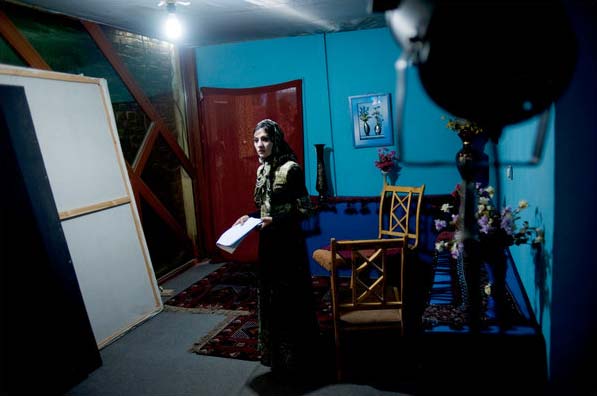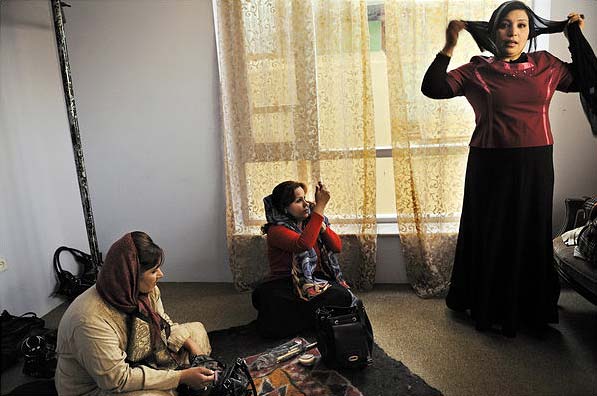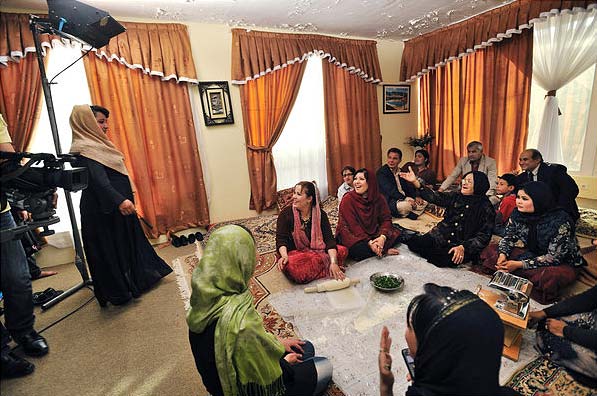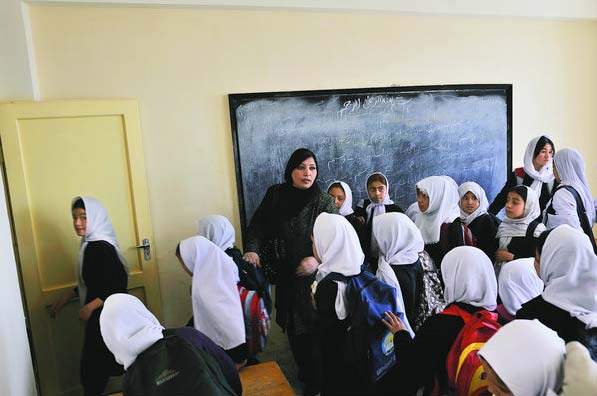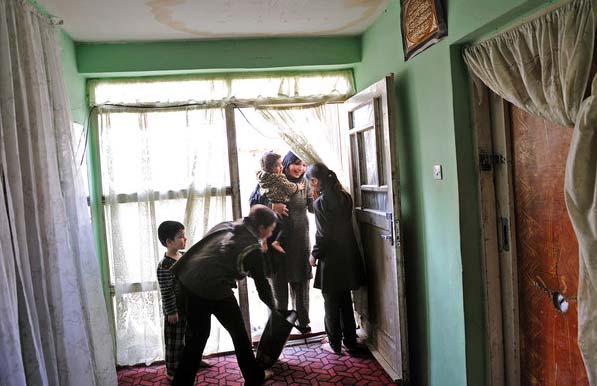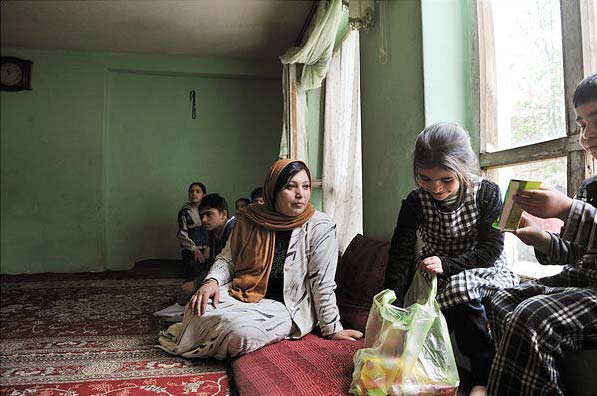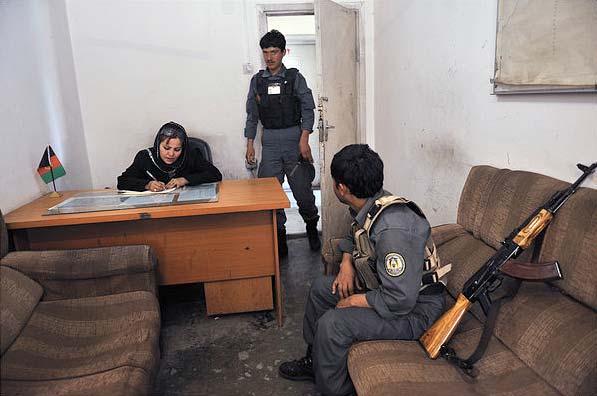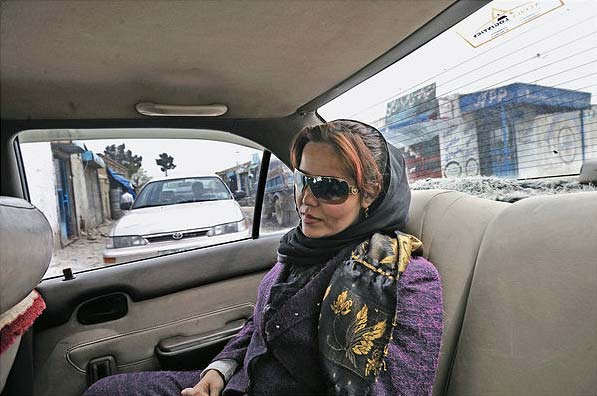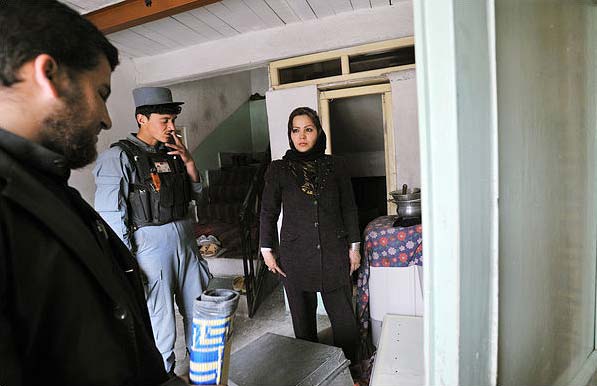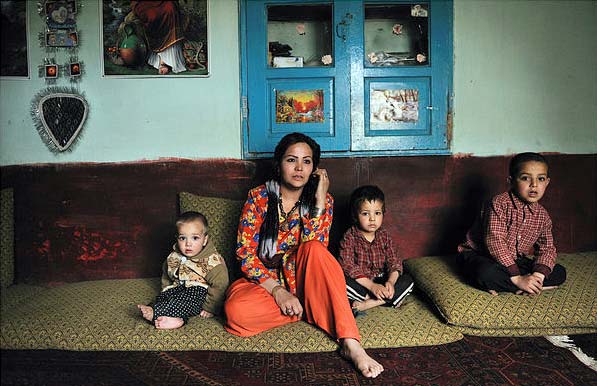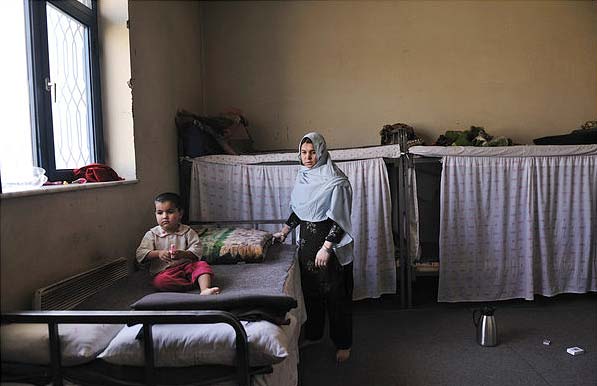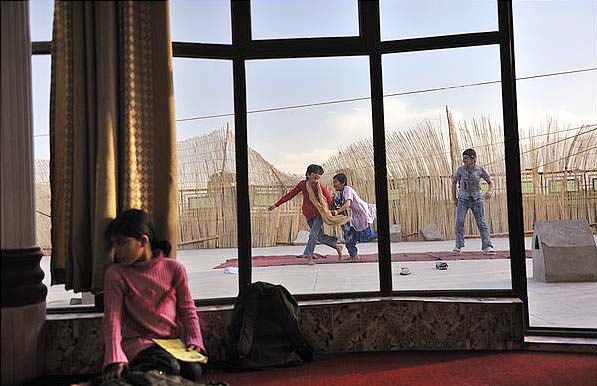Women empowered on Afghanistan's first TV soap opera
Women working on Afghanistan's first TV soap opera, “The Secret of This House,” face public scorn, being ostracized, even death threats. Their families often don't want them to appear on TV, but they still go on.
-
Women working on Afghanistan's first TV soap opera, “The Secret of This House,” face public scorn, being ostracized, even death threats. Their families often don't want them to appear on TV. But, they still go on.
In this picture, 19-yr-old Arzoo, one of the main actresses, is seen on set of the show. When she started taking roles, her uncle tried to kill her, and the neighbours beat up taxi drivers who took her home. But she refused to give up.
“My father said if you are happy to work in films you are dead for us, you are not our daughter,” she said. (NYT PHOTO) -
Plots on “The Secrets of This House” involve corruption, drugs, crime, condition of women, young people and, of course, love. The soap opera's writers are hoping it will not just hold up a mirror to Afghan society but also become a topic of a cultural conversation and an agent of change. (NYT PHOTO)
-
On “The Secrets of This House,” Shekiba plays the good and patient wife of a character who is always failing to find a job. In real life, Shekiba's phone is always ringing, sometimes with callers threatening her if she doesn't stop acting, and sometimes with fans declaring their love. (NYT PHOTO)
-
This is Habibi Abdul Aziz, one of the many women serving time at the relatively new women's prison for so-called moral crimes. Two years after her husband was jailed for killing Habibi's cousin because he suspected the two of them were having an affair, he got the idea to accuse Habibi as well, thinking he'd get off earlier. His testimony was enough to convict her. (NYT PHOTO)
-
Gullabo, Habibi's 10-year-old daughter, used to live with her mother in prison, where she saw her mother lying in blood after her father stoned her. Life in the prison was constant fighting and misery for Gullabo. Now she is thriving at the Children's Support Center, a residence and school for children of incarcerated parents. (NYT PHOTO)

